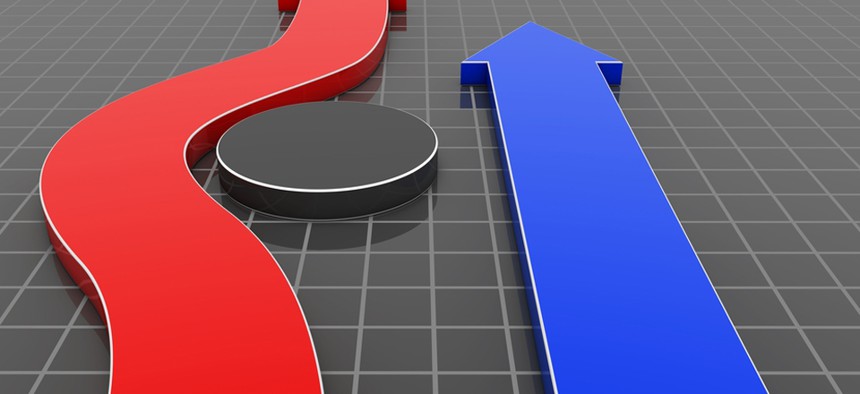
dim4ik-69/Shutterstock.com
Are You An Obstacle?
Your organization would be stronger if it didn’t need you for the day-to-day.
"If your actions inspire others to dream more, to learn more, to do more, and to become more, you are a leader." —John Quincy Adams
A speaker challenged a group of business executives: "If you left today, who would lead your organization and how would they do?" In most cases, there was no clear successor; and even when there was, the executive doubted that person's ability. For Charles, CEO of a mid-sized professional services company, it was a wake-up call. He had focused on growing the company rather than developing people. He texted his leadership team: "If I got hit by a truck today, what would concern you most?" Interestingly, his recovery from the accident wasn't on their list. Their concerns were compiled and acted upon. A year later, Charles took a 30-day sabbatical. When he returned, his team joked that things ran better without him.
Even if that wasn't true, clearly the company was stronger because it did not need him for routine operations. It may seem paradoxical, but your organization also would be stronger if it didn't need you for day-to-day matters. Instead of being indispensable in the production machine, your role as a leader is to build the team's skill and knowledge. Furthermore, the proven ability to develop others is an asset in getting your next promotion.
One obstacle to people development is managing at too low a level. Heavy-handed control over operations retards development and may push the best people to leave. A surprising number of mid-level executives cite their boss as a factor in performance shortfalls and production disruptions. Those bosses typically under-communicate, micromanage, and do work themselves rather than teach the right person how to do it. After the boss himself, the most frequently cited organizational factors that adversely affect performance are:
- Overlapping or vague job responsibilities
- Lack of quantitative performance goals and actionable feedback
- Inefficient processes or failure to follow them consistently
- Outdated technology
Acknowledge that some things you do may impede development of your people and get in the way of them delivering top performance. When you grow yourself in this way, you provide room for your people to grow as well.
Dick Stieglitz is a business consultant, author and speaker who works with companies and government agencies to change the way they do business. His books include Taming the Dragons of Change. This post first appeared in his newsletter The Change Challenge.
(Image via dim4ik-69/Shutterstock.com)






